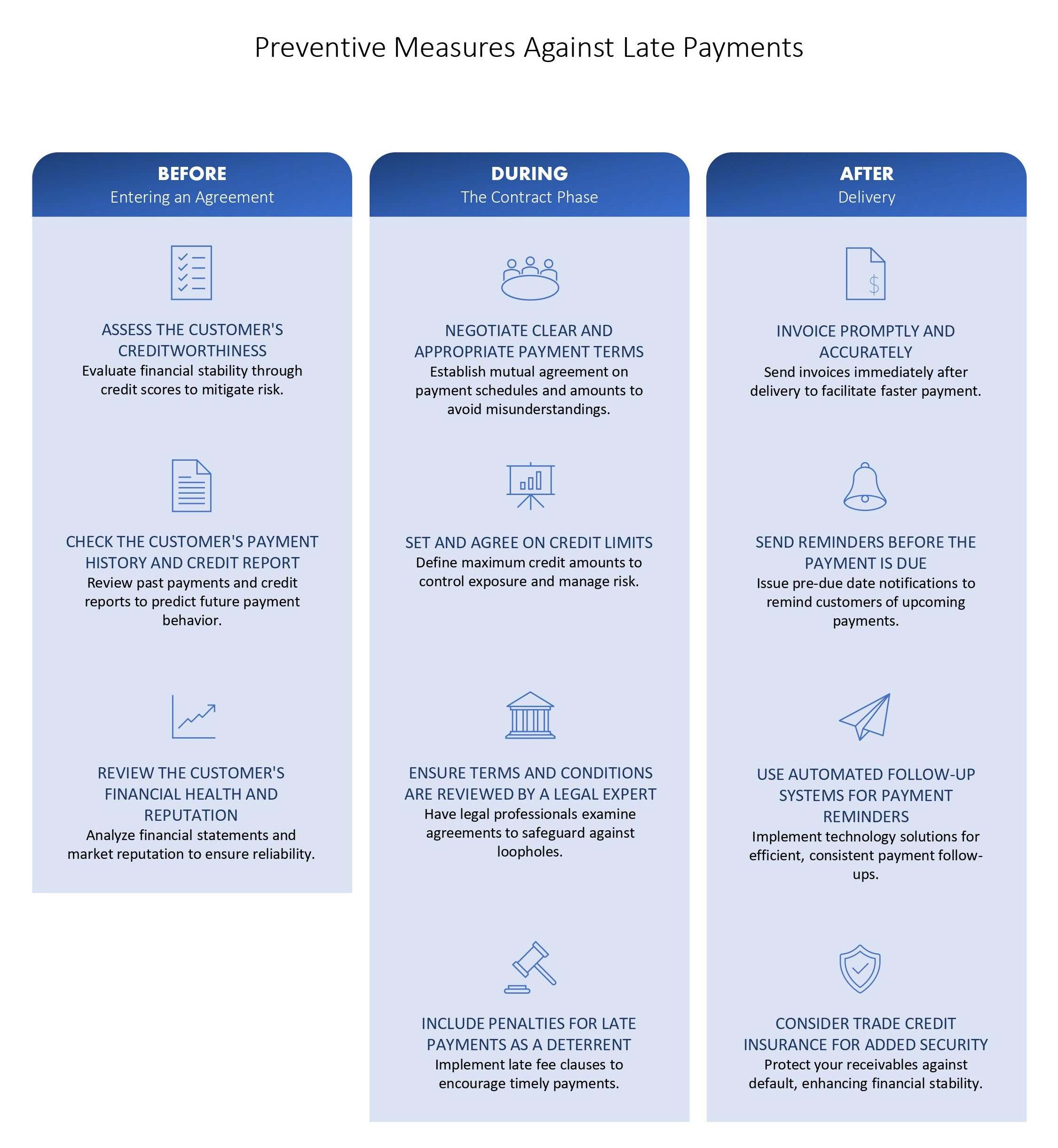The business debt collection of non-payment is generally covered by law. Legal frameworks exist in some countries that dictate terms relating to when a payment is considered “late” and the kinds of fee, penalty and late payment interest that can be levied to recoup the additional debt collection costs. However, these laws are not applied worldwide.
Your chances of debt recovery are better if you trade in Europe or North America. For example, the US, UK, Netherlands and Scandinavia have legal frameworks covering late payments. For example in the UK, the Late Payment of Commercial Debts (Interest) Act 1998 and its 2013 amendment entitle suppliers to collection costs incurred as well as a late payment interest at 8% above base rate of the Bank of England.
In the European Union, legislation first introduced in 1998 supports the statutory right of companies to collect interest for late payments. Simply put, the EU regulations indicate that debtors will be forced to pay interest and reimburse the reasonable recovery costs of the creditor if they do not pay for goods and services on time (60 days for business and 30 days for public authorities).
For example, you can claim compensation for reasonable costs in recovering the incurred debt as well as an additional late payment fee, depending on the size of the unpaid debt. These terms should be made clear in your customer agreement. The late payment fee will encourage your client to pay now if they want to avoid more costs further down the line.
Keep in mind that debt collection and its application vary widely from country to country. Some entire regions have no legislation to support suppliers. Late payment letters may be ignored. Croner’s Reference Book for Exporters is a useful resource for information on trade practices, as are our country risk rating reports and debt collection agency profiles available here.











